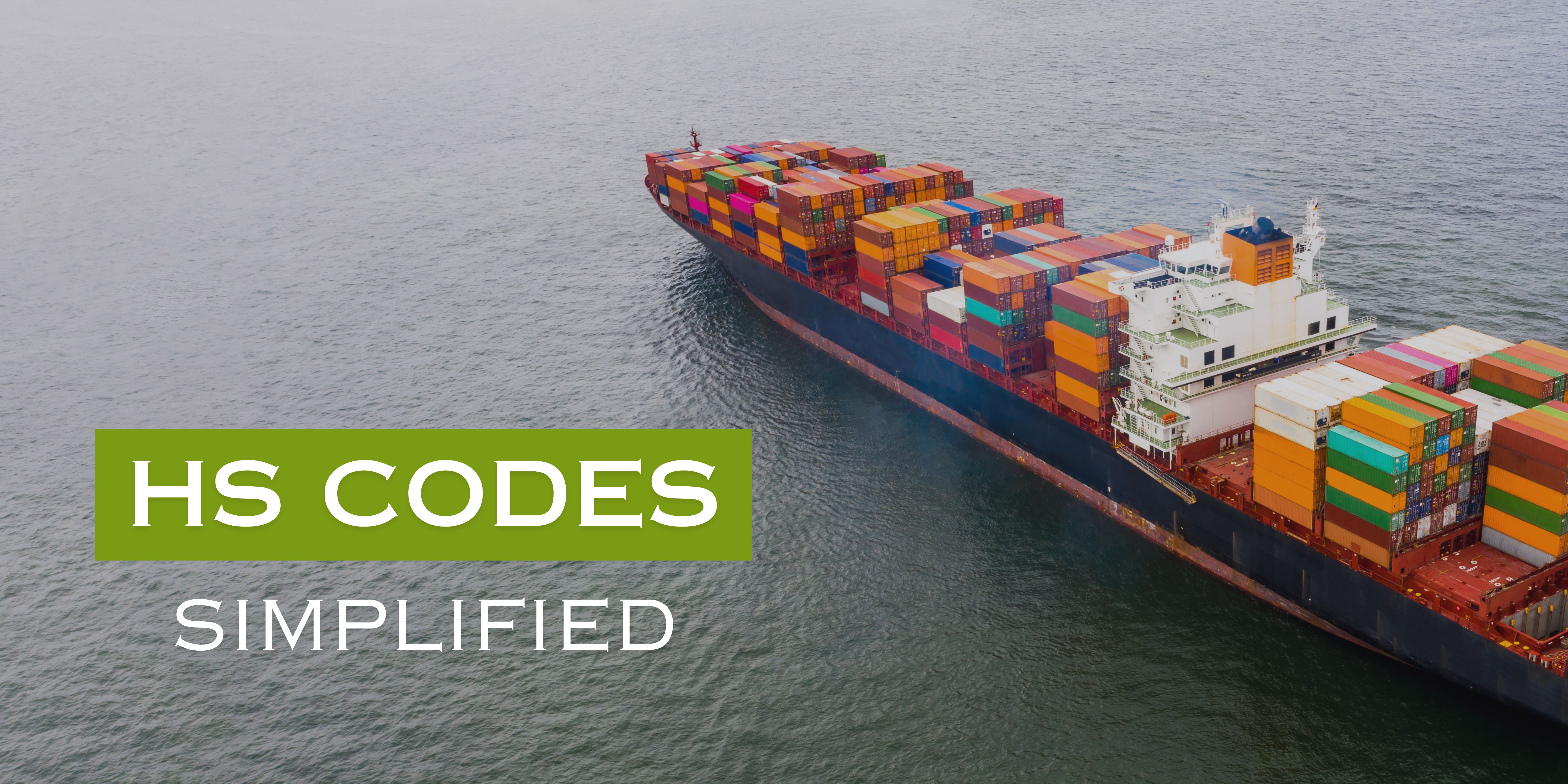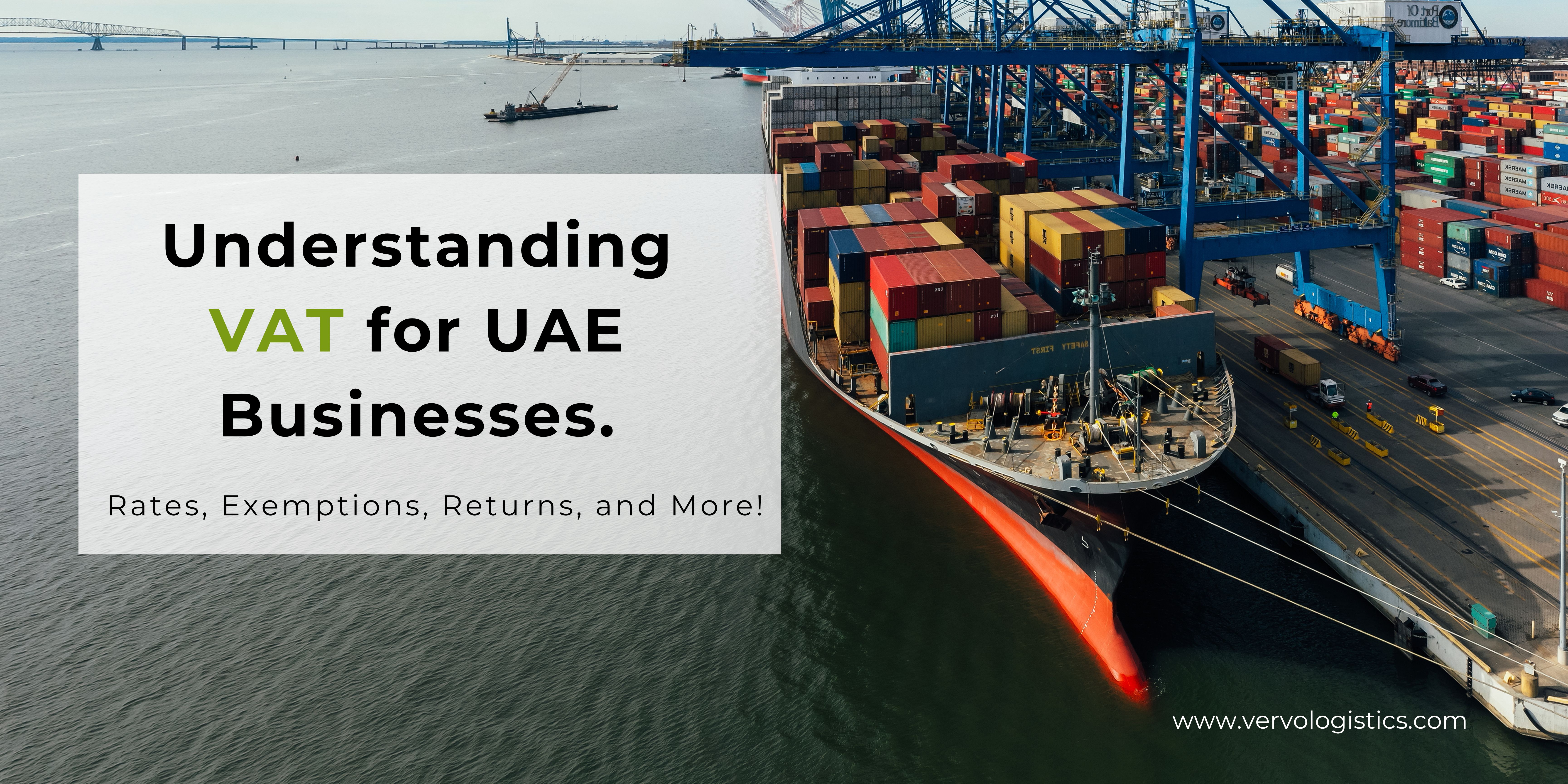Imagine you are a musician, and you have just crafted a beautiful guitar that you want to sell overseas. How do you ensure that your guitar reaches the right destination without any hitches? How does the destination country know what is arriving on their shores? The answer lies in a simple, yet crucial six-digit code known as the HS Code.
The Harmonized System (HS) Code is a universal economic language and code for goods — a key that unlocks the complexities of global trade. For UAE shippers, understanding this code is paramount to ensuring smooth international trade transactions. This article will simplify the concept of HS codes, highlighting their importance and how UAE shippers can effectively use them.
What are HS Codes?
The HS Code, or Harmonized Commodity Description and Coding System, is an international standardized system of names and numbers to classify traded products. Developed by the World Customs Organization (WCO), it covers approximately 98% of world trade, making it a decisive tool for governments, international organizations, and shippers worldwide.
Each HS Code is a unique six-digit number. The first two digits (HS-2) denote the chapter the goods are classified in, like 92 for musical instruments. The next two digits (HS-4) identify the heading—for example, 92.02 covers string musical instruments. The final two digits (HS-6) are even more specific, detailing the item's sub-description.
The Harmonized System (HS) code is a standardized numerical method of classifying traded products used by customs authorities around the world to assess duties and taxes and for gathering statistics. The HS code itself does not directly refer to the country of origin or destination; it is designed to be a globally uniform classification system.
However, when goods are imported or exported, a full classification number known as a "tariff code" is used, which can be longer than the 6-digit HS code. This full code includes additional digits that are country-specific. These additional numbers are used by individual countries to further categorize goods for their own tariff and statistical purposes. This means that while the first 6 digits of an HS code will be the same for a given product regardless of where it's imported to or exported from, the full code including the additional digits can vary from country to country.
For instance, the UAE typically uses a 7-digit tariff code, where the first six digits are the HS code, which is uniform internationally, and the seventh digit is an additional national subdivision. This 7-digit structure helps the UAE customs authorities in applying custom duties, collecting statistical data, and implementing import/export regulations specific to the country.
For imports and exports, businesses and individuals must use this extended code on their customs declarations to ensure compliance with local UAE customs regulations and avoid penalties.
The Importance of HS Codes for UAE Shippers
HS Codes are more than just a series of numbers. They are pivotal in ensuring a smooth flow of goods and services across borders, and here's why:
- Simplifying Customs Processes: Customs authorities rely on HS codes to identify the goods being imported or exported, which helps in calculating duties and taxes. With the right HS code, customs clearance becomes a breeze, ensuring your goods reach their destination on time.
- Trade Statistics: HS codes are used in collecting international trade statistics, including the UAE's trade reports. They help track the number and types of goods being traded, which aids in economic analysis and policy-making.
- Trade Compliance: Using incorrect HS codes can lead to misdeclaration of goods, resulting in penalties, delays, or even seizure of goods. Proper usage ensures compliance with trade regulations, shielding UAE shippers from potential legal issues.
Decoding HS Codes: A Simplified Process for UAE Shippers
Understanding and using HS codes doesn't have to be a daunting process. Here's a simplified guide for UAE shippers:
- Identify Your Product: Begin by clearly defining your product. What is it made from? What is its function? Answers to these questions will guide you in your search for the correct HS code.
- Use the Federal Customs Authority (FCA) Portal: The UAE's FCA provides a comprehensive database of HS codes. Input your product's details into the search bar to find the corresponding HS code.
- Consult with a Freight Forwarder: If you're still unsure, Vervo Middle East's Customs Brokerage services in the UAE can help. We have extensive knowledge of every detail when it comes to coding cargo and can provide you with the correct HS code.
- Stay Updated: The WCO reviews the HS code system every five years. Ensure you stay updated to avoid using outdated codes.
A Basic Outline of HS Code System General Categories
Below is a basic table that outlines the general categories of the HS Code system. Each of these categories is further divided into many subcategories, which are further divided into specific product codes. You can ask Vervo Middle East to help you classify your goods properly.
|
HS Code Range |
Description |
|---|---|
|
01–05 |
Animal & Animal Products |
|
06–15 |
Vegetable Products |
|
16–24 |
Foodstuffs, Beverages, Tobacco & Manufactured Tobacco Substitutes |
| 25–27 |
Mineral Products |
|
28 - 38 |
Chemicals & Allied Industries |
|
39–40 |
Plastics / Rubbers |
| 41–43 | Raw Hides, Skins, Leather, & Furs |
|
44–49 |
Wood & Wood Products |
| 50–63 | Textiles |
|
64–67 |
Footwear / Headgear |
|
68–71 |
Stone / Glass |
|
72–83 |
Metals |
|
84–85 |
Machinery / Electrical |
|
86–89 |
Transportation |
|
90–92 |
Optical, Photographic, Medical Equipment, Musical Instruments |
|
93 |
Arms and Ammunition |
|
94–96 |
Miscellaneous Manufactured Articles |
|
97–99 |
Works of Art, Collectors' Pieces, and Antiques |
Keep in mind, this is a simplified breakdown of the HS Code system and doesn't cover every possible category. For a full, detailed list, refer to the World Customs Organization's official Harmonized System Nomenclature.
Clear and Comply with Vervo Middle East
If you are shipping to/from the UAE, understanding HS codes is not just necessary but beneficial for your trade operations. It is a simple tool that goes a long way in facilitating international trade, saving you time, money, and potential legal complications.
With Vervo Middle East’s global team of licensed customs brokers, you can navigate global trade with ease. Courtesy of our 15+ years as a seasoned freight forwarder. We do more than assign HS codes; we ensure precise, smooth customs transitions, backed by a deep understanding of international and local regulations. Simply, We can help you ‘comply and clear’ no matter your cargo type.
You can today benefit from direct access to our robust network across Europe, the Middle East, and over 120 countries, guaranteeing seamless border crossings for your cargo.
What are we missioned to do? Handle the complexities, so you can concentrate on your business.
So, next time you're shipping that beautifully crafted guitar or any other product, remember, it is not just the right HS Code, but also a reliable partner is your ticket to a hassle-free journey from the world to the UAE.
Request your personalized customs brokerage quote today!




